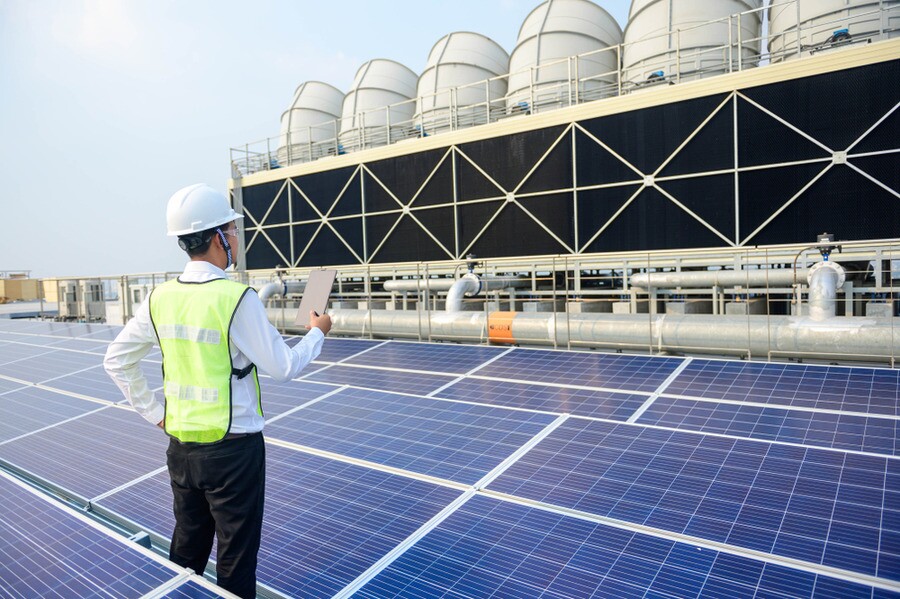The Public Investment Fund (PIF), Saudi Arabia’s sovereign wealth fund, has announced that its utility subsidiary, Badeel, and utility project developer, ACWA Power, have signed power purchase agreements (PPAs) for three major solar photovoltaic (PV) projects in the Kingdom. The PPAs were signed with the Saudi Power Procurement Company (SPPC) to develop and operate three major solar PV Independent Power Producer (IPP) projects in Saudi Arabia. These projects are part of the National Renewable Energy Program (NREP), which is supervised by the Ministry of Energy, and PIF is mandated to develop 70% of NREP’s target capacity.
The three new solar projects – Ar Rass 2, Saad 2, and Al Kahfah – will be jointly owned by Badeel and ACWA Power and aim to produce a combined capacity of 4.55GWac of renewable energy, powering around 750,000 households. The projects have a capacity of 2,000MWac, 1,125MWac, and 1,425MWac of renewable power, respectively, with a combined value of SAR12.2 billion ($3.25 billion). The financial close for these projects is expected by the third quarter of 2023, according to PIF.
The Ministry of Energy aims to achieve the goals of Saudi Arabia’s Vision 2030 by increasing the share of renewables in the energy mix to around 50% by 2030. The ministry plans to accomplish this by displacing liquid fuels and harnessing renewable energy sources, with the remainder of the energy mix being supplied through high-efficiency gas-fueled power plants.
Read more: ACWA Power closes $8.5 bn for NEOM’s green hydrogen project
PIF is currently developing five new projects, with a cumulative capacity of 8GW, at an investment of over $6 billion, in coordination with its partners. These renewable projects, including Sudair, Shuaibah 2, Ar Rass 2, Al Kahfah, and Saad 2, will help support the local private sector by requiring significant local content contribution and procuring equipment, supplies, and services through local supply chains.
Click here for more news on energy.




